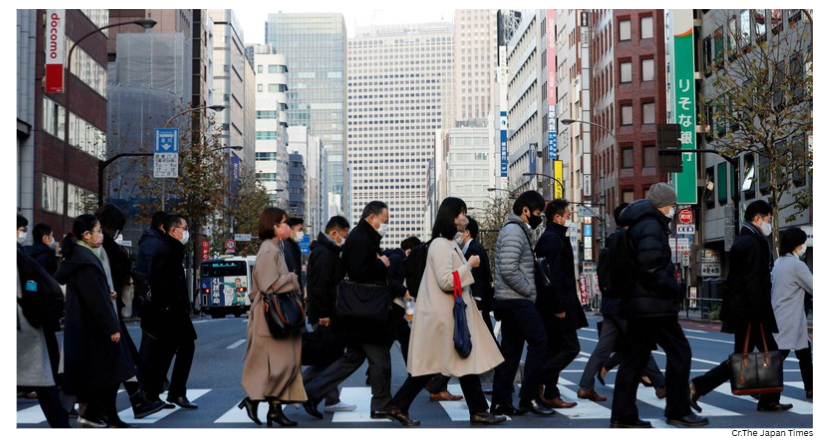Resignation Agencies : The New Normal for Japan’s Workforce
Japan is widely known for its strong work ethic, deep-rooted corporate loyalty, and traditional employment practices such as “lifetime employment.” Given these factors, resigning from a job in Japan can be a complex and socially restrictive process. While Japan’s work culture remains strict, recent years have seen the emergence of startups offering “resignation services” or “Taishoku Daikou” (退職代行), which have gained significant popularity. Why have these businesses emerged? Why do Japanese workers need such services? This article will explore the growing industry of resignation agencies in Japan.
Why is Resigning in Japan So Difficult?
1.Strict Work Culture Japan has a rigid work culture that highly values loyalty to companies. Many employees work at the same company for years and feel a strong sense of obligation to their superiors. In some cases, resigning may be perceived as a betrayal of the organization.
2.Social and Workplace Pressure
- Employees who resign often face pressure from their bosses and colleagues.
- Some companies make it difficult for employees to quit by rejecting resignation letters.
- Certain internal company regulations impose strict requirements for resignation notice periods.
3.Legal Concerns While Japanese labor law allows employees to resign by providing prior notice as stated in their employment contract, in practice, many employees are pressured to continue working or must navigate complicated procedures to leave.
What Are Resignation Agencies?
Resignation agencies, or Taishoku Daikou companies, provide a service that helps employees resign from their jobs without having to confront their employers directly. The first startup to introduce this service was Exit, founded in 2017 by Toshiyuki Niino, who personally experienced the stress and obstacles of quitting a job. Since then, over 20 similar companies have emerged in Japan.
These agencies act as intermediaries, handling all resignation procedures on behalf of employees, including
- Notifying the employer about the resignation
- Communicating with HR departments and preparing necessary documents
- Providing legal consultation in case the employer refuses to accept the resignation
The typical service fee ranges from 20,000 to 50,000 yen (approximately 5,000 to 12,000 THB), depending on the complexity of the case.
Examples of Resignation Service Companies
- Exit (エグジット) – One of the first and most well-known resignation agencies.
- Yameta (やめた) – Offers comprehensive services, including legal consultation.
- Taishoku.com – Provides an online resignation service for employees who want to quit without direct interaction with their employer.
Who Uses Resignation Services?
1.Workers in Their 20s and 30s The majority of resignation agency users are young professionals who prefer to avoid the stress of resigning in person. Many new graduates realize that their jobs don’t match their expectations and seek to resign quickly.
2.Employees in Toxic Work Environments Workers facing power harassment (bullying in the workplace). Employees forced to work excessive unpaid overtime, leading to extreme stress or even “karoshi” (death from overwork).
3.Employees Who Want to Avoid Direct Confrontation Some workers suffer from anxiety or fear dealing with employers who might pressure them to stay.
The Growth of the Resignation Agency Market
Due to economic shifts and changing work dynamics, the resignation agency market continues to expand. The COVID-19 pandemic further accelerated this growth as more employees sought career changes or relief from high-stress jobs.
Despite some criticism—where some view resignation agencies as a way for employees to avoid responsibility—many people support these services because they reduce emotional distress and provide workers with a smoother transition to new opportunities.
A report by Al Jazeera, titled “In Japan, embarrassed employees pay agencies to quit for them”, highlights the increasing use of resignation agencies in Japan. The article states that many Japanese employees feel ashamed or afraid of quitting because of the country’s corporate culture, which emphasizes loyalty and dedication to employers. In some cases, companies even make it difficult for employees to leave by deliberately complicating the resignation process.
Future Outlook of Resignation Agencies -The resignation agency market is expected to continue growing, especially among younger workers aged 20–30. Given Japan’s strict work culture, these services will likely remain in demand. However, government regulations or corporate policies may eventually step in to oversee and standardize such services.
Resignation agencies in Japan represent an innovative business model that addresses a societal issue—the difficulty of quitting a job in a highly structured corporate environment. While resignation services come at a cost, many workers see them as a stress-free solution to leave toxic workplaces or transition to better opportunities.
By acting as legal representatives, these agencies ensure smooth resignation processes while protecting employees from direct pressure. Given Japan’s rigid work culture, it’s no surprise that more Japanese workers are turning to resignation agencies as a practical alternative to navigating workplace challenges alone.
Source : exitinc aljazeera.com
Personnel Consultant , we’re Japanese recruitment agency company in Bangkok. We has been in the business of recruiting Thai and Japanese talent for 30 years.
Companies looking for talent & staffing , please contact us through this form Click
Tel.02-2608454
Email : jobs@personnelconsultant.co.th














